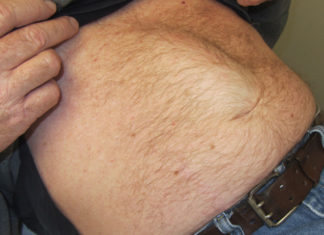A miscarriage can be a traumatic experience in the life of a woman. It is extremely common but leaves the couple shattered. If you are wondering what a miscarriage is, here is the answer.
A miscarriage takes place when the fetus somehow dies before it reaches the 20th week of pregnancy. Most of these spontaneous abortions happen in the first trimester, and almost 20 per cent of pregnancies end in a miscarriage.
Miscarriages are possible in natural as well as pregnancies through implants. In chemical pregnancies, women do not realise that they have conceived, and during the miscarriage, bleeding occurs during her periods.
Miscarriages occur due to a variety of reasons and can be of different types. In most cases, it is not known why abortion occurred so, it is best to stay informed about the what, why, and how of spontaneous abortion and keep care during the pregnancy.
What causes a miscarriage?
The Chromosomal abnormality is the simplest explanation behind the happening. The body rejects the fetus because there is something wrong with its chromosomes. These abnormalities often result because either the sperm or the egg was damaged while the zygote was divided.
Some of the other causes of miscarriage include:
- Infections or hormonal problems
- Health issues with the mother
- Diabetes
- An incorrect lifestyle like smoking, too much caffeine, malnutrition, drugs, or radiation exposure
- Age of the mother
- Trauma
- The egg does not get implanted properly
- Sometimes an injury can also result in a miscarriage
- Women who have suffered from at least a couple of miscarriages are likely to face similar results with the third one also
- If your abortion happened after three months then it can be a result of a uterine abnormality.
What are the Chances of Miscarriage?
Above mentioned reasons cause almost 10 to 25 per cent of miscarriages in women of childbearing age while healthy women have about 15 to 20 per cent chances.
Women between 35 and 45 years have a chance of around 20-35 per cent, and above 45 years, the success rate in half. Women with a previous history of a miscarriage have a 25 per cent possibility of a recurrence.
How to recognise a miscarriage?
Before the spontaneous abortion, there are certain symptoms of miscarriage that women can try and recognise. These early miscarriage symptoms include:
- You may experience back pain ranging from mild to an extreme condition. Sometimes it can be worse than your menstrual cramps.
- You can notice Weight loss immediately after the miscarriage.
- You may experience severe contractions every five to 20 minutes
- Red or brown bleeding may be without cramps
- You can notice Whitish pink mucus
- Clots and tissue-like substances may pass through your vagina are signs of a miscarriage
- An overall decrease in the signs that you are pregnant
What are the types of miscarriages?
In most cases, a miscarriage is more like a process rather than an event. The various types of miscarriages are named owing to the symptoms or reasons associated with them. Generally speaking, all miscarriages are called so, but medical practitioners use a specific name for each type.
Incomplete miscarriage:
This is a condition accompanied by back and abdominal pain along with bleeding. The cervix remains open. The miscarriage occurs because the cervix is dilated. If the miscarriage is incomplete, then the cramp and bleeding continue.
Complete miscarriage:
The entire embryo, in this case, has come out of the uterus. The pain and bleeding subside quickly.
Threatened miscarriage:
In this case, the cervix remains closed even though some amount of bleeding occurs. In most cases, the bleeding stops and the pregnancy continue. But sometimes, the bleeding does not stop and results in an incomplete miscarriage. You will have to take the help of your doctor to complete the process.
Missed miscarriage:
Women are unable to understand this one because there is no external symptom like bleeding or pain. The embryo, in this case, dies in the womb. You will not find the symptoms of pregnancy, and an ultrasound will reveal the true condition.
Recurrent miscarriage:
When women face miscarriages consecutively thrice or more, it becomes a recurrent miscarriage. Around 1 per cent of couples face this situation and have to take their medical practitioner’s help for conceiving.
The recurrent miscarriage again can be of three types, like the embryonic pregnancy w. Even when the fertilised egg has been implanted in the uterine wall, there is hardly any growth in the fetus.
The second type of ectopic pregnancy is where the egg is implanted in the fallopian tube rather than the uterus. In such cases, the growth of the egg has to be stopped urgently so that the mother can be saved.
The last type is the molar pregnancy, where an abnormal tissue in the uterus starts growing due to a genetic error in the fertilisation process. The embryo is absent in this case, but all the symptoms of pregnancy remain present.
What risks a pregnancy?
Certain factors place a pregnancy at risk. These include:
Smoking, drinking, and drugs:
Women who smoke have a greater risk of a miscarriage than those who do not. Further drinking and drugs increase the chances manifold.
Overweight:
If you have a weight problem, then try to control it before you conceive. Being overweight can be harmful to your pregnancy.
Prenatal tests:
If you have undergone invasive prenatal tests, then there might be increased chances of a miscarriage.
How to prevent a miscarriage?
Preventing a miscarriage is quite difficult because, in most cases, it occurs due to a chromosomal abnormality. The only that can be done is to make the mother as healthy as possible so that these difficulties do not occur in the first place. Check out some of the measures that can be taken to make the body healthy before conceiving.
- Regular exercise
- Healthy diet and lifestyle
- No smoking
- No alcohol consumption
- Weight maintenance
- Regular intake of folic acid
When you have finally conceived, it is essential to take care of yourself.
- No active or passive smoking
- Do not consume alcohol
- Stay physically safe
- Do not take any medicine without the consultation of your doctor
- Stay away from infectious diseases and radiation
- Do not take part in sports or activities in which you can get injured
How to recover from a miscarriage?
A miscarriage can happen to any woman, and feeling miserable is quite natural. Do not shut yourself away from the world and take the pain alone. Speak to your family and friends who will encourage you. Allow yourself sufficient time to grieve over your loss.
Your partner may not similarly express the feeling because men and women express their grief in different ways. Women bond with the baby right after they become pregnant, while men, in most cases, bond after the infant is born. Speak to health care providers and chalk out ways of starting afresh.






